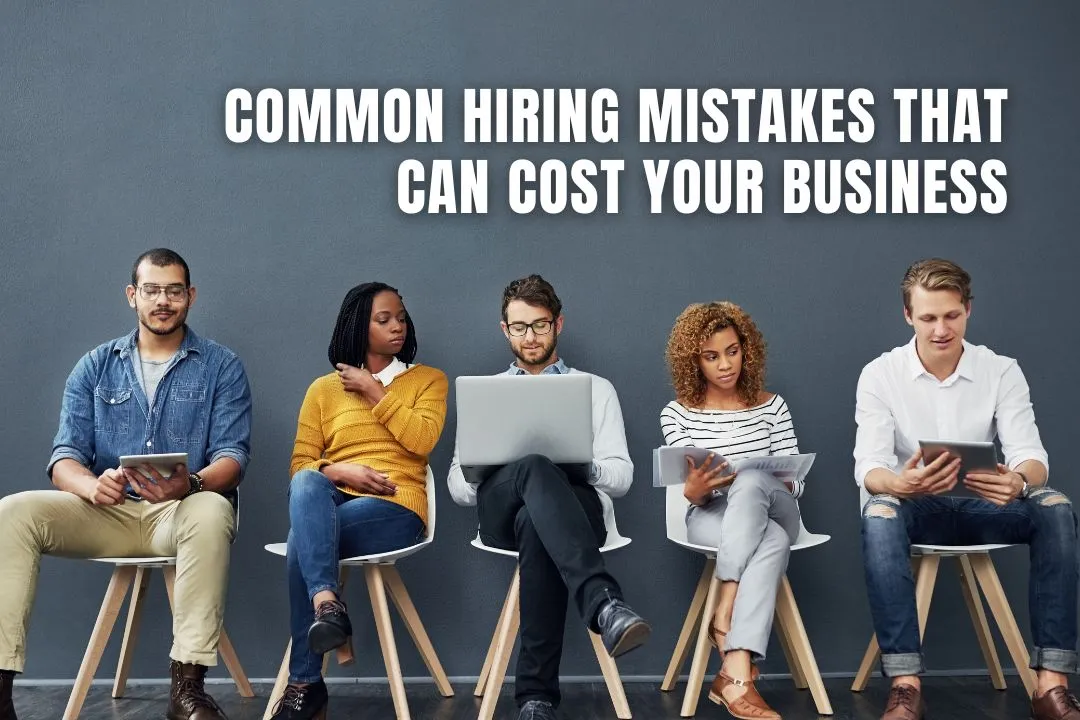
Editorial Disclaimer
This content is published for general information and editorial purposes only. It does not constitute financial, investment, or legal advice, nor should it be relied upon as such. Any mention of companies, platforms, or services does not imply endorsement or recommendation. We are not affiliated with, nor do we accept responsibility for, any third-party entities referenced. Financial markets and company circumstances can change rapidly. Readers should perform their own independent research and seek professional advice before making any financial or investment decisions.
Hiring the right candidate is one of the most critical decisions a business can make. Yet, many companies find themselves making mistakes during the hiring process. Whether it’s overlooking key red flags or rushing through interviews, these errors can result in lost time and money. Recognising these common mistakes and addressing them can improve your recruitment efforts and help you build a more effective team.
Time is always a factor in hiring, but rushing the process can lead to poor decisions. Businesses often feel pressure to fill a vacancy quickly, but this haste can cause them to overlook critical aspects. Skipping thorough interviews, background checks, or skill assessments to speed up the process can lead to hiring someone who is unqualified or not the right fit. It’s essential to balance speed with diligence, ensuring that each candidate is thoroughly vetted before being offered the job.
Sometimes, candidates might present themselves as perfect for the job, but certain red flags are ignored or overlooked. A lack of enthusiasm, vague answers to specific questions, or a tendency to speak negatively about previous employers are red flags. Being aware of these signs can help avoid making the mistake of hiring someone who may not be as suitable as they first appear.
Background checks are often seen as an afterthought in the hiring process, but they are essential in ensuring you make an informed decision. Relying solely on the information provided by a candidate can leave you open to potential risks. For example, failing to run a criminal history lookup or verify work experience could allow someone with a problematic history to slip through the cracks. Taking the time to properly vet candidates can protect your business from unnecessary liabilities.
Hiring decisions should never be made in isolation. Relying on just one person's opinion can lead to bias or oversight. It’s important to involve other team members in the interview process and seek multiple perspectives on a candidate. By having a collective input, businesses can ensure they’re making a more well-rounded decision that considers various viewpoints and needs within the company.
Sometimes, businesses settle for a candidate who meets the bare minimum of qualifications but isn’t truly the best fit. While it may seem easier to hire someone who’s just “good enough,” this mindset can lead to frustration, lower performance, and eventual turnover. The goal should always be to find the best candidate for the role, even if it takes a bit longer or requires a more thorough search.
The hiring process is one of the most significant aspects of building a successful business. Avoiding these common mistakes can help ensure you make smarter hiring decisions, leading to better employees and a stronger organisation. Taking the time to conduct thorough interviews, background checks, and assessments can help you avoid costly errors and build a team that will contribute to your company’s success. Check out the infographic below to learn more.
